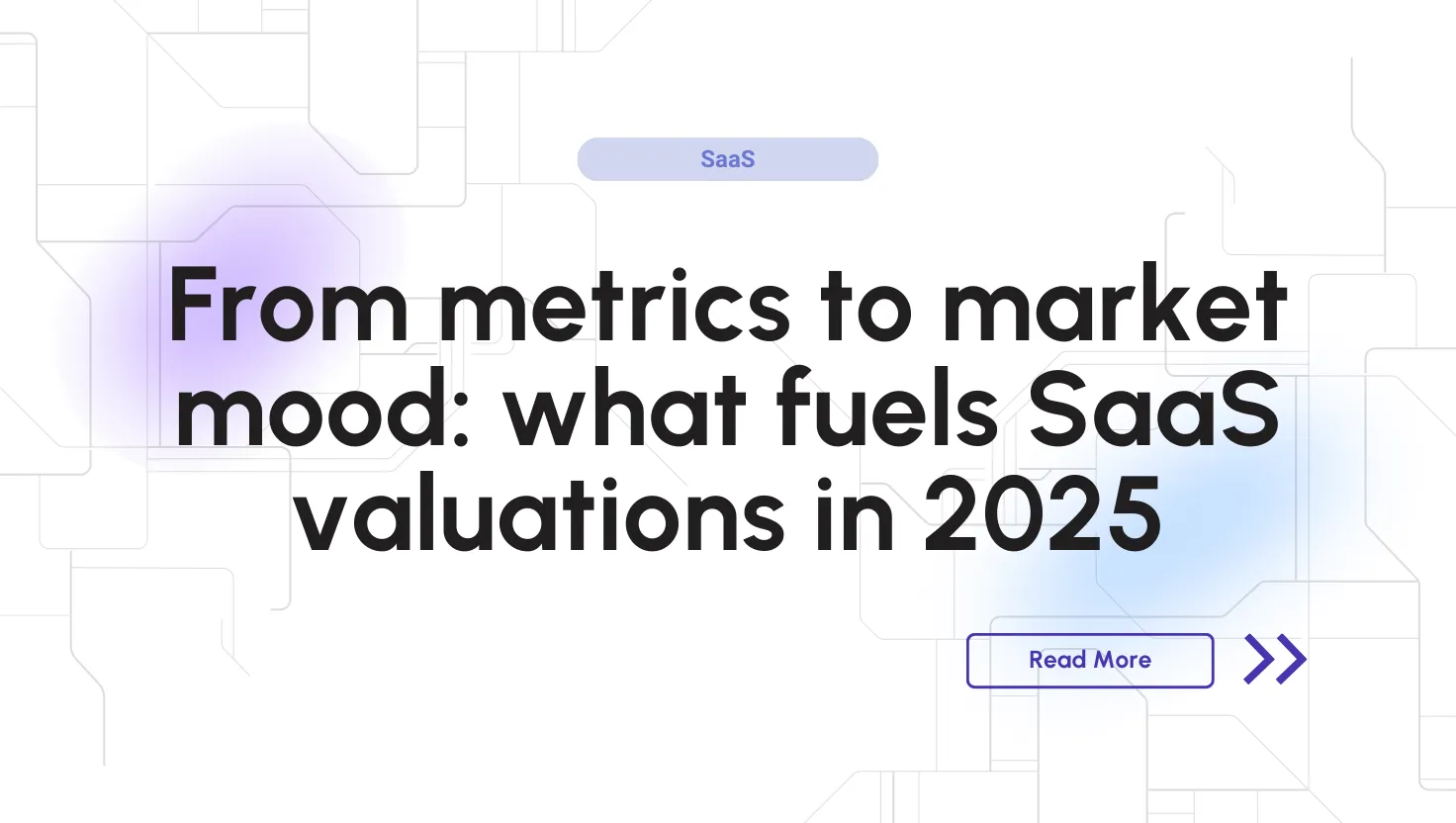Have you ever wondered how much your e-commerce business is worth? Whether you’re thinking about selling your business or just curious about its value, knowing the true worth of your ecommerce business is essential. But figuring out that number can feel like trying to solve a puzzle—there are many pieces to consider! In this article, we’ll break down the process of how to value an ecommerce business into easy-to-understand steps.
We’ll explore everything from sales and profits to customer retention. By the end, you’ll have a clear picture of what makes your business valuable and how to measure it. And here’s where it gets exciting: we’ll introduce you to Flippa, a popular platform where people buy and sell online businesses.
Flippa doesn’t just help you sell; it also provides handy tools to help you figure out how much your business is worth. So whether you’re planning to sell soon or just want to know the value of your hard work, this guide will help you every step of the way.
Let’s get started and discover the actual value of your ecommerce business together!
Why Ecommerce Business Valuation is Important
Understanding the value of your ecommerce business is more than just a number on paper; it’s a vital part of making smart business decisions. Whether you’re thinking about selling, planning for growth, or simply want to know where you stand, having a clear valuation is crucial.
For sellers, knowing the accurate value of your business can mean the difference between closing a successful sale and leaving money on the table. It helps you set a fair asking price that attracts serious buyers while ensuring you get the return you deserve. On the other hand, if you’re a buyer, understanding the valuation gives you confidence that you’re making a wise investment. You’ll know exactly what you’re paying for and whether it’s worth the price.
But the importance of valuation doesn’t stop at buying and selling. A proper valuation also helps secure financing, attract investors, and even make decisions about reinvesting in your business. For example, if you know which parts of your business drive the most value, you can focus your resources on those areas to boost growth.
Accurate valuation also plays a key role in strategic planning. It can reveal your business’s strengths and weaknesses, helping you capitalize on what’s working and improve what’s not. This kind of insight is invaluable when planning your next move, whether it’s expanding into new markets, launching new products, or optimizing your operations.
In short, knowing how much is your ecommerce business worth is a powerful tool. It gives you the clarity and confidence to take your business in the right direction, whether selling at the right price, attracting investors, or planning for growth.
Key Factors Affecting Ecommerce Business Valuation
Valuing an ecommerce business isn’t just about looking at your sales numbers or profits. Several key factors come into play that can either increase or decrease the overall value of your business. Understanding these factors is essential to getting an accurate valuation.
Revenue and Profit Margins
Revenue: This is the total income your business generates from sales. While revenue is an important metric, it’s not the only one that matters.
Profit Margins: Profit margins tell you how much of your revenue turns into profit after all expenses are paid. High revenue with low-profit margins might not be as valuable as lower revenue with high-profit margins. Buyers often look at profitability to assess a business’s long-term viability.
Growth Potential
The potential for future growth can significantly impact your business’s value. If your ecommerce business is in a niche market that’s expected to grow, or if you have a scalable model with room to expand, these factors will make your business more attractive to buyers. Highlighting growth trends, new market opportunities, or upcoming product lines can boost your valuation.
Customer Base
A loyal and engaged customer base is a major asset. Repeat customers and high customer lifetime value (CLV) are indicators that your business has a strong foundation. Buyers often consider the quality of your customer base when determining how much they’re willing to pay.
Traffic Sources
Where your customers come from matters. Organic traffic (visitors who find you through search engines) is typically more valuable than paid traffic because it suggests strong brand visibility and lower customer acquisition costs. Diversified traffic sources (e.g., search engines, social media, email marketing) can improve your business’s value by reducing dependency on any single channel.
Operational Efficiency
How efficiently your business operates can also influence its value. This includes everything from inventory management and order fulfillment to customer service and marketing automation. Streamlined operations that minimize costs while maintaining quality can make your business more appealing to buyers.
Brand Strength
A strong, recognizable brand with a positive reputation can significantly increase your business’s value. This includes elements like brand identity, customer trust, and brand loyalty. If your brand stands out in a crowded market, it will be more attractive to potential buyers.
Financial Records and Transparency
Clean, well-documented financial records are crucial. Buyers want clear evidence of your business’s performance, including revenue, expenses, and profits. Transparency in your financials builds trust and makes your business more accessible to value accurately.
Intellectual Property and Proprietary Products
If your business owns trademarks, patents, or unique products that differentiate you from competitors, these can add significant value. Intellectual property rights protect your business from competitors, making it more attractive to buyers seeking a competitive edge. Each of these factors plays a role in determining the overall value of your ecommerce business. You can maximize your business’s worth by understanding and optimizing these elements.
Methods on How to Value an Online Business
When valuing an online business, there isn’t a one-size-fits-all approach. Different methods can be used depending on your business’s specific characteristics and valuation goals. Below are some of the most commonly used methods to determine the value of an ecommerce business.
Earnings Multiplier Method
What It Is: One of the most common methods to value ecommerce businesses. It involves multiplying the business’s seller discretionary earnings (SDE) by an industry-specific multiple. The multiple is usually based on business size, growth rate, and market conditions.
How It Works: For instance, if your business has an SDE of $100,000 and the typical multiple for your industry is 3x, your business could be valued at $300,000.
When to Use It: This method benefits businesses with a consistent profitability and growth track record.
Asset-Based Valuation
What It Is: This method calculates the value of your business based on the total value of its tangible and intangible assets minus any liabilities.
How It Works: This includes inventory, equipment, and intellectual property. The idea is to calculate the cost of re-establishing the business.
When to Use It: Asset-based valuation is often used for businesses with significant physical or intellectual assets. However, it can be less relevant for businesses that rely heavily on intangible assets like brand reputation or customer loyalty.
Discounted Cash Flow (DCF) Analysis
What It Is: DCF analysis values a business based on its expected future cash flows, discounted back to its present value. This method assumes that a dollar earned in the future is worth less than a dollar earned today.
How It Works: You estimate the business’s future cash flows and apply a discount rate to account for risk and the time value of money. The sum of these discounted cash flows gives you the business’s valuation.
When to Use It: DCF best suits businesses with predictable and stable cash flows. It’s particularly useful for growth-stage companies that expect to generate significant profits in the future.
Comparable Sales Method
What It Is: This method involves examining recent sales of similar businesses to determine the value of your own. It’s similar to how real estate agents value houses by comparing them to similar properties that have recently sold.
How It Works: You gather data on recent sales of ecommerce businesses with similar characteristics (e.g., revenue, profit margins, industry) and use this data to estimate your business’s value.
When to Use It: The comparable sales method is effective when plenty of relevant market data is available. Brokers and marketplaces like Flippa often use it to provide a benchmark valuation.
Traffic Valuation Method
What It Is: This method values your business based on the quality and quantity of its web traffic.
How It Works: You calculate the value of your traffic by considering factors like conversion rates, customer acquisition costs, and the lifetime value of customers acquired through different traffic sources.
When to Use It: This method is particularly useful for businesses that rely heavily on organic or paid traffic and have a well-optimized conversion funnel.
Each method has its strengths and is best suited to different types of businesses and valuation scenarios. Often, a combination of these methods will provide the most accurate valuation. For example, you might use the earnings multiplier method as a starting point and then adjust your valuation based on asset values or discounted future cash flows.
Common Mistakes to Avoid in Ecommerce Business Valuation
Valuing an ecommerce business can be complex, and even experienced entrepreneurs can make mistakes during the process. These errors can lead to undervaluing or overvaluing the business, both of which can have significant consequences, especially if you’re planning to sell. Below are some common mistakes to watch out for and how to avoid them.
Overlooking Hidden Costs
- What It Is: When calculating the value of your business, it’s easy to focus on revenue and profits while neglecting hidden costs such as marketing expenses, payment processing fees, or shipping costs.
- Why It’s a Mistake: Ignoring these costs can inflate your business’s perceived profitability, leading to an overvaluation. Buyers who later discover these costs might feel misled and back out of a deal.
- How to Avoid It: Ensure all expenses are accounted for in your financial records. Regularly review and update your profit and loss statements to include all costs, even those that seem minor.
Ignoring the Value of Intangible Assets
- What It Is: Intangible assets like brand reputation, customer loyalty, and intellectual property (e.g., trademarks, patents) can significantly add to your business’s value.
- Why It’s a Mistake: Many sellers underestimate the value of these assets because they don’t show up on traditional balance sheets. However, they can be a major draw for buyers.
- How to Avoid It: Identify and highlight your business’s intangible assets during the valuation process. Consider their impact on future revenue and brand strength when determining your business’s overall value.
Using Outdated Financial Data
- What It Is: Valuing your business based on old financial data can lead to inaccurate results. The ecommerce market is dynamic, and your business’s performance can change rapidly.
- Why It’s a Mistake: Relying on outdated data can either overvalue or undervalue your business, depending on how your business has performed recently.
- How to Avoid It: Always use the most current financial data available when valuing your business. This includes updating your financials to reflect recent revenue trends, cost changes, and market conditions.
Overestimating Future Growth
- What It Is: It’s natural to be optimistic about your business’s future, but overestimating growth potential can lead to an unrealistic valuation.
- Why It’s a Mistake: Buyers are wary of valuations based on overly optimistic projections. If your future growth doesn’t materialize as expected, it could harm your reputation and lead to disputes.
- How to Avoid It: Base your valuation on realistic, data-driven growth projections. Consider using conservative estimates and providing a range of possible outcomes to give buyers a clear picture.
Failing to Consider Market Conditions
- What It Is: The broader market conditions, including industry trends and economic factors, play a significant role in determining your business’s value.
- Why It’s a Mistake: Ignoring market conditions can lead to a mismatch between your asking price and what buyers are willing to pay.
- How to Avoid It: Stay informed about the current market conditions in your industry. Consider factors like market growth, competition, and economic trends when setting your valuation. Tools like those offered by Flippa can help you compare your business to similar ones recently sold, giving you a better sense of the market landscape.
Not Seeking Professional Help
- What It Is: Many business owners try to handle the valuation process entirely on their own, which can lead to mistakes.
- Why It’s a Mistake: Valuation is a specialized field, and without proper expertise, you might overlook important factors or use incorrect methods.
- How to Avoid It: Consider hiring a professional, such as a business broker or a valuation expert, to assist with the process. Platforms like Flippa can also provide guidance and tools that make the valuation process more accurate and less stressful.
Avoiding these common mistakes will help ensure that your ecommerce business is valued accurately, whether you’re preparing to sell or simply want to understand your business’s worth better.
Tools and Resources for Ecommerce Valuation
Valuing an ecommerce business accurately requires more than just intuition or a rough estimate. Thankfully, there are several tools and resources available that can help you calculate a precise valuation. These tools can save you time, reduce errors, and give you confidence in your business’s value.
Online Valuation Calculators
- What They Are: Valuation calculators are online tools that help you estimate the value of your ecommerce business by inputting key financial metrics like revenue, profit margins, and growth rates.
- How They Work: These calculators typically use industry-specific formulas or multiples to estimate a quick valuation. They’re especially useful for getting a rough idea of what your business might be worth.
- Recommended Tool: Flippa offers a robust online valuation calculator that is tailored specifically for ecommerce businesses. It allows you to input your financials and get an instant estimate, helping you gauge the market value of your business.
Financial Management Software
- What It Is: Financial management software helps you monitor your business’s financial health by organizing your income, expenses, assets, and liabilities.
- How It Works: These tools provide detailed financial reports that are essential for accurate valuation. They can also help you spot trends, manage cash flow, and prepare financial statements needed for valuation.
- Popular Tools: QuickBooks and Xero are popular choices among ecommerce business owners. They offer comprehensive features that make it easier to manage your finances and prepare for valuation.
Comparable Market Analysis Tools
- What They Are: These tools allow you to compare your business against similar businesses that have recently been sold or are currently on the market.
- How They Work: These tools help you better understand your business’s current market position by analyzing comparable sales. This method is particularly useful for determining a realistic asking price if you’re planning to sell.
- Recommended Tool: Flippa’s marketplace offers a wealth of data on comparable sales, allowing you to see how similar businesses are valued. This data-driven approach helps you set a competitive price and better understand market trends.
Professional Valuation Services
- What They Are: Professional valuation services are provided by experts who specialize in business valuation. These professionals use methods and in-depth analysis to deliver a comprehensive valuation report.
- How They Work: A professional will thoroughly analyze your financial records, market conditions, and business model to provide a detailed and accurate valuation. This service is precious for larger businesses or those with complex financials.
- Where to Find Services: Flippa offers access to a network of professional brokers and valuation experts who can provide personalized valuation services tailored to your business needs.
Marketplaces and Broker Platforms
- What They Are: These platforms facilitate the buying and selling of businesses and provide tools and resources to help you understand your business’s value.
- How They Work: Marketplaces like Flippa provide insights into what similar businesses are selling for, which can help you determine your business’s value. These platforms also offer valuation tools, buyer analytics, and expert advice.
- Recommended Platform: Flippa stands out as a comprehensive marketplace that offers valuation tools, access to buyer trends, and professional guidance, making it a go-to resource for ecommerce business owners.
Accounting and Legal Advisors
- What They Are: Engaging accounting and legal professionals can be crucial when valuing a business, especially when dealing with complex financial situations or preparing for a sale.
- How They Work: Accountants help ensure that your financials are accurate and up-to-date, which is critical for a precise valuation. Legal advisors can assist with contracts, intellectual property rights, and other legal aspects that impact your business’s value.
- How to Use Them: Consult with your accountant to review financial statements and consider hiring a lawyer to review any legal factors that might affect the valuation process.
Utilizing these tools and resources can significantly enhance the accuracy of your ecommerce business valuation. They provide the data, insights, and professional support needed to arrive at a valuation that genuinely reflects the worth of your business. Whether you plan to sell or simply want to understand your business’s value better, these resources are invaluable.
How Flippa Can Help You Value and Sell Your Ecommerce Business
When valuing and selling your ecommerce business, having the right support can make all the difference. Flippa is a leading platform that offers a complete range of tools and resources designed to help you accurately value your business and connect with potential buyers. Let’s explore how Flippa can assist you in this critical process.
Access to a Wide Marketplace
How It Helps: Listing your business on Flippa exposes it to a global network of interested buyers. This increases your chances of finding the right buyer who sees your business’s true value. The platform also offers analytics on buyer behavior, helping you understand who is interested in your listing and why.
Valuation Tools
- What It Is: Flippa offers specialized valuation tools that are tailored for ecommerce businesses. These tools take into account various factors like revenue, profit margins, growth trends, and comparable sales.
- How It Helps: By using Flippa’s valuation tools, you can get an instant estimate of your business’s worth. These tools are easy to use and provide a quick starting point for your valuation process. Additionally, Flippa’s data-driven approach ensures that your valuation is aligned with current market conditions.
Expert Valuation Services
- What It Is: If you need a more detailed and personalized valuation, Flippa connects you with professional valuation experts and brokers who specialize in ecommerce businesses.
- How It Helps: These experts thoroughly analyze your business, considering all relevant factors to provide a comprehensive valuation report. This service is precious if you have a complex business model or require a detailed breakdown of your business’s value.
Comparable Market Analysis
- What It Is: Flippa’s platform lets you view data on recent sales of similar businesses, giving you insights into how your business compares in the current market.
- How It Helps: This data helps you set a realistic asking price based on what other businesses are selling for. It also provides insights into market trends, helping you understand how to position your business effectively.
Listing and Marketing Support
- What It Is: Flippa offers comprehensive support for creating and marketing your business listing. This includes professional guidance on how to present your business to attract the right buyers.
- How It Helps: A well-crafted listing is crucial for attracting serious buyers. Flippa’s experts can help you highlight the strengths of your business and create a listing that stands out. They also offer marketing services to ensure your listing reaches a wide audience.
Negotiation and Closing Assistance
- What It Is: Flippa provides tools and resources to assist with negotiations and the closing process, ensuring a smooth transaction.
- How It Helps: Selling a business involves more than just finding a buyer. Flippa’s platform helps facilitate negotiations, ensuring that both parties reach a fair agreement. They also offer guidance on the closing process, including legal and financial considerations, to ensure the sale goes smoothly.
Post-Sale Support
- What It Is: Flippa doesn’t just stop at the sale. They offer post-sale support to help with the transition process.
- How It Helps: Transitioning ownership of an ecommerce business can be complex. Flippa’s post-sale support helps ensure a smooth handover and that both the buyer and seller are satisfied with the outcome.
Flippa stands out as a complete solution for anyone looking to value and sell their ecommerce business. Whether you’re looking for a quick valuation or need full-service support through the selling process, Flippa provides the tools, expertise, and marketplace access you need to achieve your goals.
Conclusion
Valuing your ecommerce business is not just a financial exercise; it’s a strategic move that can influence your future decisions, whether you’re planning to sell, seeking investment, or simply wanting to understand the true worth of your hard work. By understanding the key factors that drive value, avoiding common pitfalls, and using the right tools and resources, you can arrive at a valuation that accurately reflects the potential of your business.
Throughout this article, we’ve explored various methods to value an ecommerce business, from the earnings multiplier method to discounted cash flow analysis. We’ve also discussed the importance of considering intangible assets, market conditions, and the critical role that accurate and up-to-date financial data plays in the valuation process.
Furthermore, platforms like Flippa provide invaluable support for business owners navigating the complex world of ecommerce valuation. With Flippa, you have access to powerful valuation tools, expert advice, and a global marketplace that connects you with potential buyers who recognize the value of your business. Whether you’re in the early stages of considering a sale or ready to list your business, Flippa offers the resources you need to succeed.
In the end, knowing the value of your ecommerce business gives you the confidence and clarity to make informed decisions. It empowers you to set realistic goals, plan for the future, and ultimately maximize the return on your investment. So, take the time to understand your business’s worth—it’s an investment that pays off in the long run.
If you’re ready to take the next step in valuing or selling your ecommerce business, consider starting with Flippa’s valuation tools and marketplace.






